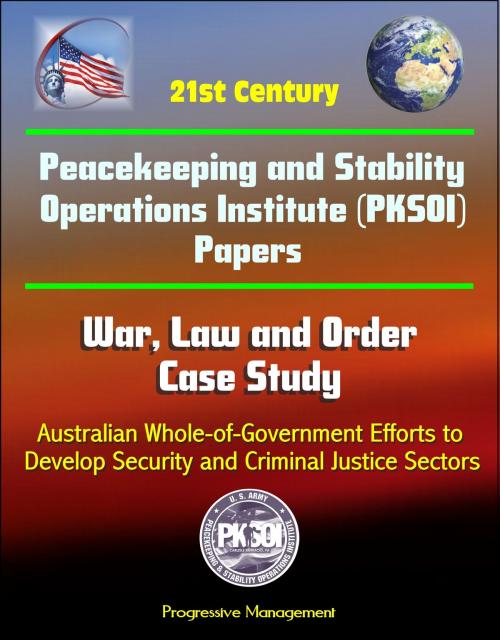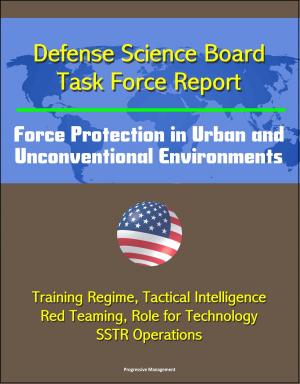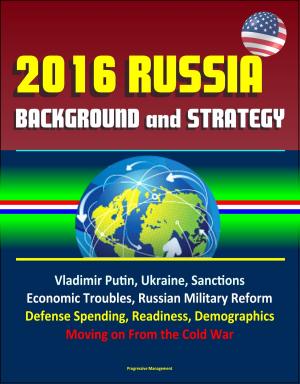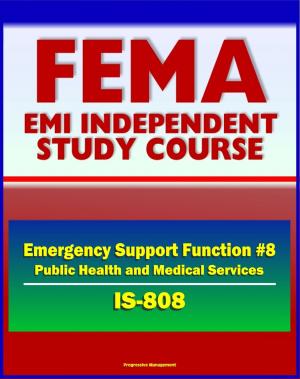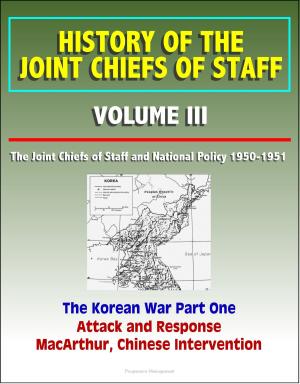21st Century Peacekeeping and Stability Operations Institute (PKSOI) Papers - War, Law and Order Case Study: Australian Whole-of-Government Efforts to Develop Security and Criminal Justice Sectors
Nonfiction, History, Military, Strategy| Author: | Progressive Management | ISBN: | 9781310585418 |
| Publisher: | Progressive Management | Publication: | November 16, 2013 |
| Imprint: | Smashwords Edition | Language: | English |
| Author: | Progressive Management |
| ISBN: | 9781310585418 |
| Publisher: | Progressive Management |
| Publication: | November 16, 2013 |
| Imprint: | Smashwords Edition |
| Language: | English |
From the foreword: In this important work, Marcus Fielding has conducted a wide ranging and comprehensive study to examine how the Australian Government can assist other governments in developing capacity in the security and criminal justice sectors and if necessary restoring and maintaining public security. He examines a number of recent Australian experiences and makes sensible and practical recommendations on how to provide a whole of government approach to support other nations.
Marcus' recommendations are a timely and practical intervention. They come at a time when Australia has gained considerable experience and has been able to learn valuable lessons from a wide range of interventions. Equally, his analysis and recommendations are also very relevant to efforts in other countries to develop similar capabilities.
In recent years the Australian Government has deployed capabilities offshore to respond to natural disasters, to assist developing nations, and support nations where there is open conflict. Prominent among these deployable capabilities are the Australian Defence Force and the relatively new capabilities resident in the International Deployment Group of the Australian Federal Police and the Australian Civilian Corps. Through the use of these agencies Australia has made a unique and significant contribution to the safety, security, stability and development of countries in the region and beyond. At the same time, other countries, such as the United States, the United Kingdom, and Canada are engaged in such activities.
In the opening sentence of his book, "The Utility of Force", General Rupert Smith makes the statement that, "War no longer exists". His thesis is that war has changed from large scale industrial war to war among the people. In this new type of warfare General Smith challenges the reader to consider the utility of existing military forces and their ability to deal with current and likely future security problems.
Of course any nation needs to maintain forces to defend against the threat of a major conventional military attack. In Australia's case that threat can be assessed as being remote for the medium term future. The more likely future security environment is the proliferation of fragile, and failing and failed states giving rise to terrorism, humanitarian disasters and intra-state conflict. In these situations there is a complex mix of political, social, cultural, economic development and security problems requiring resolution.
Over the last two decades Australia has been involved in a wide range of regional and global activities to deliver developmental support and assistance aimed at restoring and building host government capacity and contributing to peace, security and stability. The missions to Cambodia, Namibia, Bougainville in Papua New Guinea, Somalia, Rwanda, East Timor, The Solomon Islands, southern Iraq and Afghanistan are primary examples. To deal with these problems new methods of response providing a force of greater utility are required. A "whole of government" response is required to provide a "whole of government" solution. The Australian Government is at the forefront of responding to these new security challenges. It is deployed globally and has introduced novel solutions, such as the world's first deployable police force.
Australia has made a good start but there is more work to be done. A fully integrated political-military response is required. An important issue is one of balance and the integration of new and old capabilities to deal with a wider spectrum of defence, security and development problems. The three agencies are not used to working together and have distinctly different objectives, cultures, operating procedures and budgeting processes. There is a lot more work to be done to build trust and confidence and a true whole of government response.
From the foreword: In this important work, Marcus Fielding has conducted a wide ranging and comprehensive study to examine how the Australian Government can assist other governments in developing capacity in the security and criminal justice sectors and if necessary restoring and maintaining public security. He examines a number of recent Australian experiences and makes sensible and practical recommendations on how to provide a whole of government approach to support other nations.
Marcus' recommendations are a timely and practical intervention. They come at a time when Australia has gained considerable experience and has been able to learn valuable lessons from a wide range of interventions. Equally, his analysis and recommendations are also very relevant to efforts in other countries to develop similar capabilities.
In recent years the Australian Government has deployed capabilities offshore to respond to natural disasters, to assist developing nations, and support nations where there is open conflict. Prominent among these deployable capabilities are the Australian Defence Force and the relatively new capabilities resident in the International Deployment Group of the Australian Federal Police and the Australian Civilian Corps. Through the use of these agencies Australia has made a unique and significant contribution to the safety, security, stability and development of countries in the region and beyond. At the same time, other countries, such as the United States, the United Kingdom, and Canada are engaged in such activities.
In the opening sentence of his book, "The Utility of Force", General Rupert Smith makes the statement that, "War no longer exists". His thesis is that war has changed from large scale industrial war to war among the people. In this new type of warfare General Smith challenges the reader to consider the utility of existing military forces and their ability to deal with current and likely future security problems.
Of course any nation needs to maintain forces to defend against the threat of a major conventional military attack. In Australia's case that threat can be assessed as being remote for the medium term future. The more likely future security environment is the proliferation of fragile, and failing and failed states giving rise to terrorism, humanitarian disasters and intra-state conflict. In these situations there is a complex mix of political, social, cultural, economic development and security problems requiring resolution.
Over the last two decades Australia has been involved in a wide range of regional and global activities to deliver developmental support and assistance aimed at restoring and building host government capacity and contributing to peace, security and stability. The missions to Cambodia, Namibia, Bougainville in Papua New Guinea, Somalia, Rwanda, East Timor, The Solomon Islands, southern Iraq and Afghanistan are primary examples. To deal with these problems new methods of response providing a force of greater utility are required. A "whole of government" response is required to provide a "whole of government" solution. The Australian Government is at the forefront of responding to these new security challenges. It is deployed globally and has introduced novel solutions, such as the world's first deployable police force.
Australia has made a good start but there is more work to be done. A fully integrated political-military response is required. An important issue is one of balance and the integration of new and old capabilities to deal with a wider spectrum of defence, security and development problems. The three agencies are not used to working together and have distinctly different objectives, cultures, operating procedures and budgeting processes. There is a lot more work to be done to build trust and confidence and a true whole of government response.
